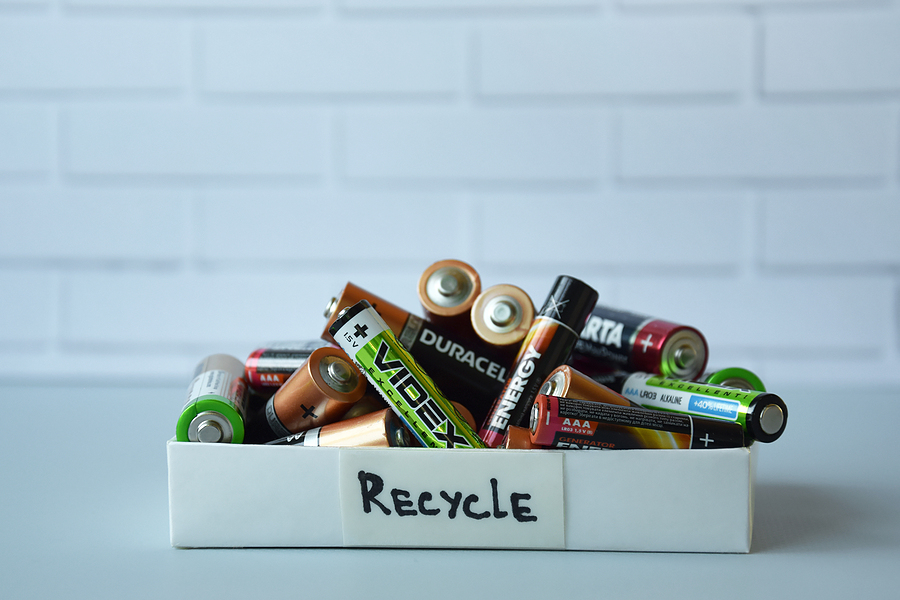
Princeton NuEnergy (PNE)
The U.S. Department of Energy recently provided a generous $12 million grant to Princeton NuEnergy, with the goal of expediting the commercialization of its technology.
The battery recycling startup, established out of Princeton University, has a patented plasma-based system that enables cathode-to-cathode and anode-to-anode recycling, without any chemical leaching. As part of its initiative, in October of 2022, the group facilitated a pilot lithium-ion battery recycling line at Wistron GreenTech’s site in McKinney, Texas.
This innovative process offers “a low cost, a low carbon footprint, and no hazardous emissions – all at a high recycling efficiency rate,” according to reports from the company. By utilizing it, carbon dioxide emissions can be reduced by as much as 70%, while expenditures associated with its implementation may decrease by 40%.
A Unique Technology
Processing 500 tons per annum, the pilot facility obtains batteries from Apple, Dell, Samsung and Call2Recycle, a national consumer battery collector. The batteries are shredded, allowing for physical isolation of anode and cathode materials prior to undergoing plasma purification.
In a press release, Yan Chao, founder and CEO of Princeton NuEnergy, said the “fully equipped facility is a powerful next step in our vision for covering a nationwide LIB close-loop recycling supply chain.”
“We intend to be a major player in meeting the recycling needs of the US LIB marketplace,” Chao added. “Our unique technology drastically reduces the time required for critical materials to re-enter the manufacturing supply chain – a major win for all LIB manufacturers.”
PNE’s mission “is to solve the current industry pain point of high-operational cost battery recycling and improve battery recycling efficiency and purity,” according to the firm’s statement.
A Largely Funded Project
Princeton NuEnergy accomplished noteworthy achievements throughout 2021. Starting with the enterprise raising a substantial $7 million via seed funding.
The organization’s track record illustrated the acquisition of $100,000 from The Intellectual Property Accelerator Fund, alongside two grants sourced from the U.S Department of Energy’s Small Business Innovation Research (SIBR) program. They also achieved remarkable returns on these grants in particular: a phase one grant worth $250,000 culminated in a phase two grant amounting to $1.15 million.
Recently, the group established another promising investment for a generous sum of $12 million sourced from the U.S Department of Energy. As its investment exceeds an impressive $600 million currently, there remains a determination to set up more than twenty manufacturing lines across North America before 2028 arrives.
Princeton Nuenergy’s vision revolves around demonstrating that “lithium-ion battery direct recycling is solvable.” Furthermore, maintaining the highest levels of environmental and social responsibility while directly recycling lithium-ion batteries remain central goals, as stated within Princeton NuEnergy’s press release.
Reliable Supply Chains
The most recent grant fosters a collaboration between the Argonne National Lab, the National Renewable Energy Lab, the Oak Ridge National Lab, and UC Irvine. The $12 million funded by the U.S. Department of Energy’s Office of Energy Efficiency and Renewable Energy seeks to secure domestic supply chains for battery materials.
Congressman Andy Kim (NJ-03) offered his praises to Princeton NuEnergy, commending the organization for its role in making New Jersey a leader in renewable energy sources stating, “right here in Bordentown, Princeton NuEnergy is doing incredible work to deliver clean-tech and re-imagine what clean energy looks like. I want to congratulate them on being awarded this Energy Efficiency and Renewable Energy grant to advance their work even further. This federal funding will not only support their innovative work in direct recycling and upcycling, but also help boost American manufacturing, combat climate change with reduced waste, and lower CO2 emissions.”
Acknowledging the U.S. Department of Energy’s commitment to advancing technology within America, Senator Cory Booker lauded its choice to provide a grant to PNE as part of its efforts towards reducing reliance on foreign materials and promoting domestic manufacturing capabilities.
Highlighting how crucial investments in lithium-ion battery direct recycling, and critical materials recovery are for fortifying both New Jersey’s and the US energy security while equally safeguarding the planet, Senator Booker further noted that PNE is also receiving funds through Tennessee Tech University’s DOE award program. This initiative advances towards pioneering mobile charging station development.
